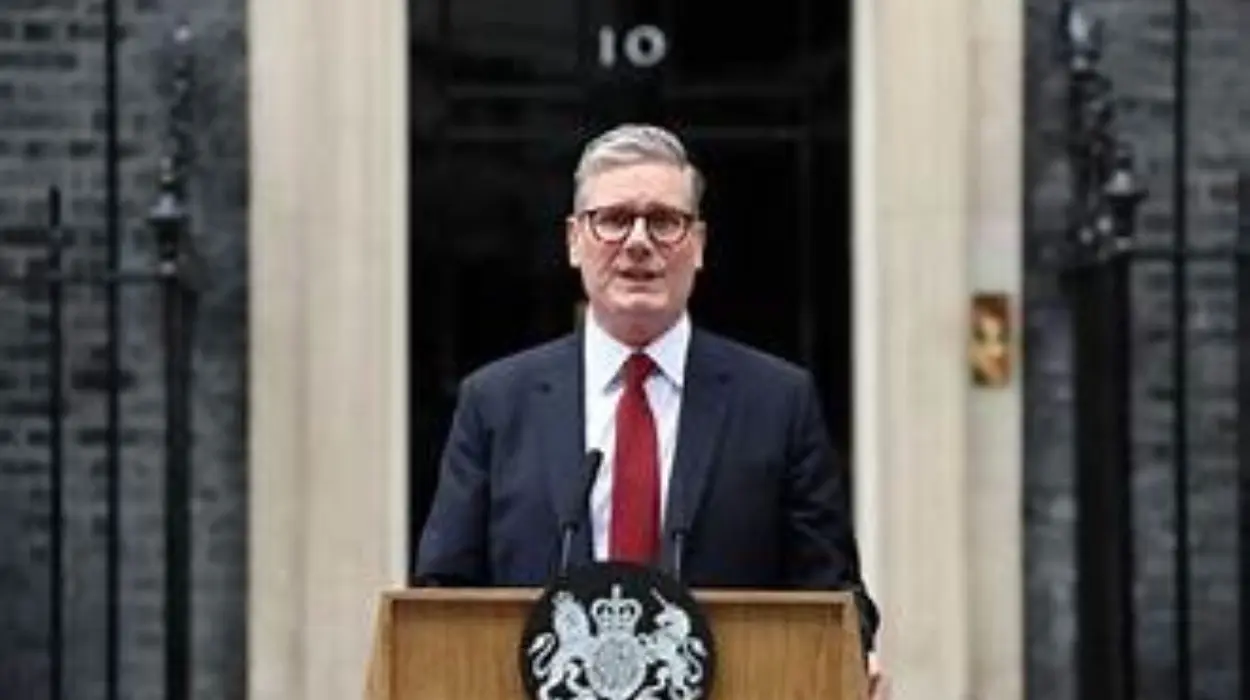
Starmer Faces Backlash Over Immigration Speech
Keir Starmer’s recent speech on immigration has sparked a wave of criticism from Labour MPs, charities, and political opponents. In his address, the Prime Minister outlined stricter measures to address what he referred to as the UK’s “broken” immigration system. However, his language, particularly his warning that the UK risks becoming an “island of strangers,” has raised alarm among many who fear it could fuel far-right rhetoric and alienate vulnerable communities. Some MPs even warned that Starmer’s words could “lay the groundwork for Nigel Farage” and embolden far-right politicians.
Clive Lewis Warns of Farage’s Influence
Clive Lewis, a Labour MP, criticized Starmer’s language, suggesting that by invoking the notion of the UK as an “island of strangers,” the Prime Minister was legitimizing far-right views. Lewis told The Independent that such rhetoric could give “a home in the political mainstream” to extreme right-wing ideologies. He warned that once these ideas are normalized, figures like Nigel Farage, leader of Reform UK, could be empowered to push even further right-wing agendas.
Read Also: UK Bans EU Meat and Dairy Imports: Travelers Risk £5,000 Fine for a Ham Sandwich
Refugee Charity Calls for Apology
Refugee charity Care4Calais condemned Starmer’s use of language, with CEO Steve Smith calling it “dangerous.” Smith argued that such rhetoric from a sitting Prime Minister could stoke fears and fuel the far-right. He urged Starmer to apologize for invoking such divisive language. According to the charity, the use of terms like “island of strangers” risks further stigmatizing migrants and refugees, who already face significant challenges and discrimination in the UK.
The White Paper: Key Proposals
In his speech, Starmer unveiled the long-anticipated immigration white paper, which includes a series of proposals aimed at reducing migration. Among the key measures is a requirement for migrants to learn English and “earn the privilege” of living in the UK. Additionally, migrants will be required to spend 10 years in the country before they can apply for citizenship. Language requirements will be significantly increased for all immigration routes, including those for adult dependents.
Another notable aspect of the proposal is the hike in the immigration skills charge, which will increase by 32 percent. Skilled worker visas will now only be available for jobs deemed to be at a graduate level, while lower-skilled jobs will have a more restrictive, time-limited access based on labor shortages.
Social Care Crisis and Concerns Over Staffing
Starmer’s immigration plans have been met with concern from some quarters, particularly regarding the impact on the social care sector. The white paper proposes ending overseas recruitment for social care visas, a decision that has been described as “cruel” by care sector leaders. With the sector already struggling with staff shortages, this policy could exacerbate the crisis and lead to further strain on an already overstretched workforce.
Professor Nicola Ranger, the general secretary of the Royal College of Nursing, criticized the government’s approach as “pandering and scapegoating.” She argued that the UK’s reliance on overseas workers, particularly in nursing and social care, has been crucial to maintaining essential services. She called for an immigration system that supports workers in these sectors, offering them security, respect, and stability.
Labour MPs React to Starmer’s Tone
While some Labour MPs, like Clive Lewis, have been vocal in their criticism of Starmer’s rhetoric, others have also expressed concern over his tone. Cat Eccles, another Labour MP, described Starmer’s comments as “worrying,” particularly in light of recent celebrations marking Victory in Europe Day. Eccles reminded the public of the importance of nations coming together and expressed her belief that the UK should be a place of welcome, not division.
The Economic Implications of Stricter Immigration Policies
Starmer’s approach to immigration raises significant economic questions. While some argue that tightening immigration could reduce strain on public services and increase employment opportunities for domestic workers, others warn that it could have adverse economic effects. Jonathan Portes, an economist, argued that making it harder for people to work and study in the UK could have long-term economic consequences, especially in sectors that rely heavily on overseas workers.
Conclusion: A Divisive Approach to Immigration
Starmer’s speech on immigration marks a significant shift in Labour’s approach to migration, moving further right in response to growing public concerns about immigration. While his government aims to reduce migration significantly, the language used and the potential consequences of these policies have stirred controversy within his party and across the political spectrum. Critics argue that the Prime Minister’s tone could alienate migrant communities, fuel the far-right, and harm sectors reliant on international workers, such as social care and healthcare. As the UK moves towards implementing these policies, the debate over immigration and its impact on society and the economy is only set to intensify.
This article is originally published on : independent





